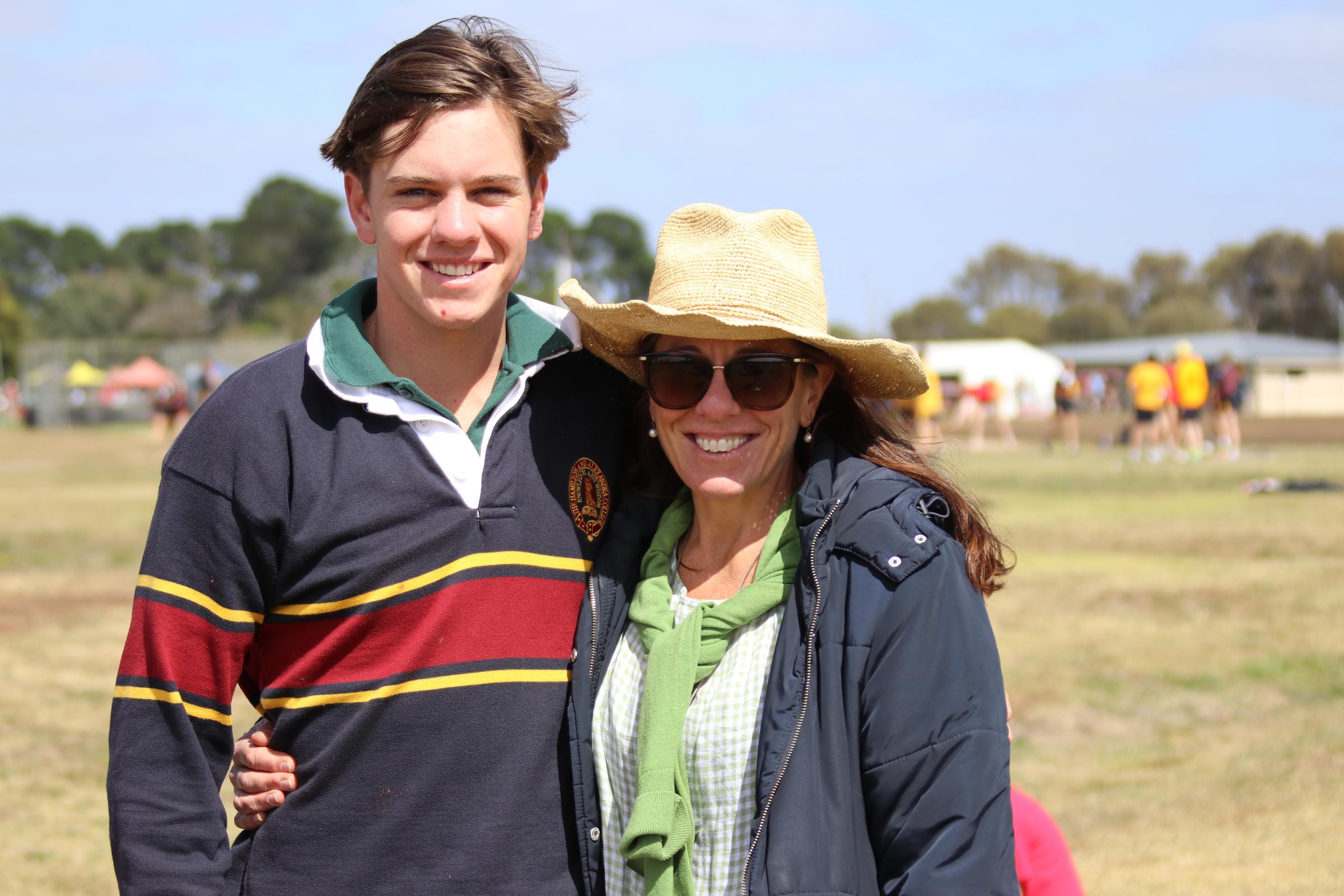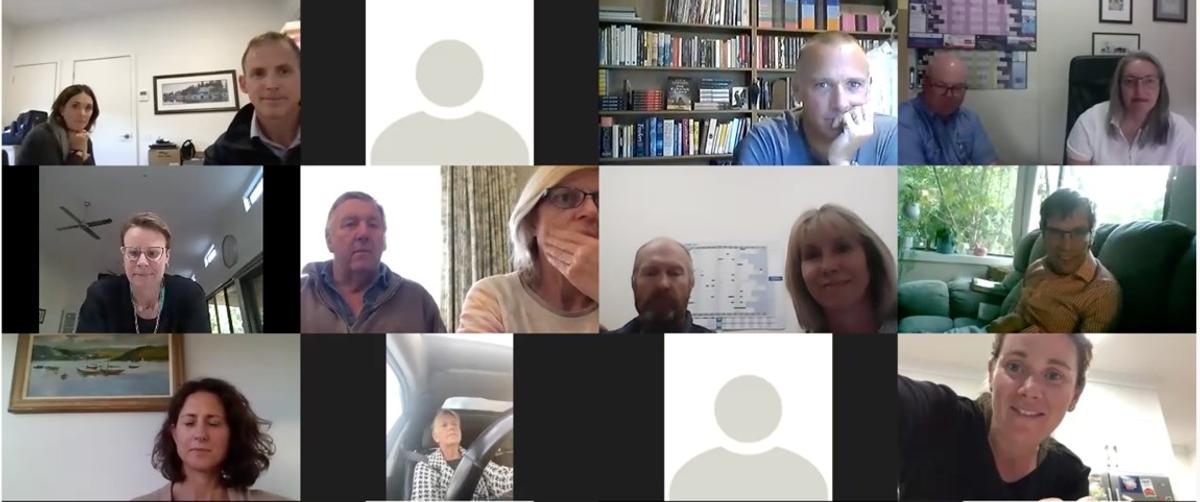Boarding

A message from our Head of Speirs House – Nick Palmer
Growth and Understanding in Speirs House
The pre-socratic philosopher Heraclitus observed, 'you cannot step in the same river twice' (Stern, 1991). The ancient idea that life is fluid and subject to change is especially apparent during boyhood in uncertain times. Here in Speirs House, we've witnessed change as a constant in our boys and aim to support them to navigate such change in all that they do. Such changes (and possible responses) include:
- Puberty. Puberty involves considerable and often tricky change. The good news is that teens have been throwing up challenges since time immemorial. It can feel that we’re in an isolated space with our puberty concerns. However, this is rarely the case and often we can gain much by seeking out those who have experienced and overcome difficulties in the past.
- Increased Testosterone. One of the significant factors in the boy's life during adolescence is that testosterone increases at times at a rate of 800 percent. This increase, obviously, happens over time. However, it can result in abrupt changes that require sensitivity and steadiness from supervisors.
- Awkward Moments. According to Maggie Dent (www.maggiedent.com), 'pubescent boys tend to be all arms and legs, ungainly and awkward, and always hungry'. This awkwardness can mean that awkward moments are inevitable. However, some humour balanced with a caring approach allows for an appreciation for the normality of awkwardness and can provide an opportunity for empathy.
- Reconnections. Over time, we can lose connections between adults and teens. Sometimes such connections have to be rediscovered. Often sharing a humorous experience, a giggle over something we observe or a funny shared event, can allow a window for a much-needed reconnection.
- Communication Breakdown. Boys can often give monosyllabic responses when communicating with adults. This communication difficulty can be a real challenge for the boys as it is for the adults dealing with it. Patience and a willingness to be available can draw out longer and deeper conversation possibilities sparking important relational opportunities.
As these changes occur, we in Speirs House seek to act sensitively, carefully and with a sense of optimism. Often our supervisory responses involve a need for considerable calm and a willingness to listen to the boy's concerns accepting, as Heraclitus posits, the inevitability of change.
*These points are taken from Maggie Dent's terrifically informative website: www.maggiedent.com
The following bio comes from Maggie's website:
Commonly known as the ‘queen of common sense’, Maggie Dent has become one of Australia’s favourite parenting authors and educators. She has a particular interest in the early years, adolescence, and resilience and is an undisputed ‘boy champion’.
Maggie’s experience includes teaching, counselling, and working in palliative care/funeral services and suicide prevention. Maggie is an advocate for the healthy, common-sense raising of children to strengthen families and communities. She is a passionate, cheerful voice for children of all ages. Her website is www.maggiedent.com.
Reference
Stern, D. G. (1991). Heraclitus' and Wittgenstein's River Images: Stepping Twice into the Same River. The Monist, 74(4), 579-604.
Boarding Parents Termly zoom meeting.
One of the silver linings from our COVID experience in 2020, was becoming familiar with connecting through zoom meetings. These meetings provide an excellent avenue to connect with our boarding families from near and far. The ease to access a zoom meeting and listen in to an update is a great way our boarding families can continue to connect with the College and importantly with each other. The meeting discussed a number of operational updates, but, was also a learning experience for many of us when it came to understanding the politics behind the year levels. There is always something to learn from our parents, their insight and experience is invaluable. In particular Jane Hetherington* who shared the following top tips for boarding families who have sons or daughters transitioning into boarding life:
- The 24 hours prior to going to the boarding house is a tense time in the family home. Be prepared for a ‘snappy’ teenager. This is all part of the nerves before arriving and completely normal.
- Parents are the ‘dumping bin’ for all the bad news via a phone call. And although your son or daughter will feel great after the phone call, you will feel pretty terrible. Make sure you take calls in the morning when everything is going well in their eyes.
- Homesickness does happen and supporting them as best as possible with anecdotes from home, and reassurance that this is normal can alleviate some of this.
- Sleep is vitally important. A healthy habit of bedtime, without screen time, is something to put into place before arriving to the boarding house. You can also receive some fairly challenging phone calls when your son or daughter is terribly tired at the boarding house.
- Allow your son or daughter to reach out and access support for themselves. Adolescents are terribly resilient and they have wonderful help with their friends, the boarding staff, and within the day-school. Provide suggestions for them to reach out and help themselves from time to time.
*Jane and Scott Hetherington have two daughters Georgia and Annabel, and a son, Tom, who have been boarders at College (currently their youngest daughter, Annabel, is in Year 12).
Boarder of the week – Alastair Baker (Yr11)
Alastair was awarded boarder of the week this week for his leadership, kindness, and willingness to help out our kitchen staff.
As a new boarder Alastair has enjoyed his first term and the transition into full-time boarding. He joined us this year so he is able to spend more time studying. Although Alastair does not have one particular highlight as yet in the boarding house, his easy-going nature and confidence has certainly been an asset to the Speirs House. In Alastair’s words, “boarding is great, it’s just easy”.
Andrew Monk
Director of Boarding


